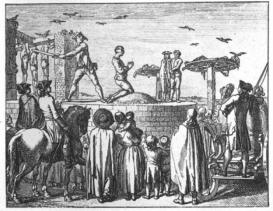It is often said that Immanuel Kant’s intention in writing his three Critiques was to reconcile empiricism with rationalism and to urge a new form of moral universalism and political cosmopolitanism. Most treatments of Kant’s philosophy are “text internal,” reflecting the assumption that exploring the conceptual relations between various Kantian theses is enough work for anyone.
My project is, in contrast, comparative and largely “text external.” It involves research into Prussian conditions with respect especially to criminality, incarceration, and punishment; and into eighteenth-century debates on civilization, the corruption of morals, and warfare. My overall aim is to interpret the Critiques as elements of a revolution conservatrice, in which Kant faces off against the moral and existential threats he perceived in eighteenth-century naturalism, including threats posed by determinism, mortalism, materialism, biological extinction, sentimentalism in morals, and historical pessimism.
I want to show how transcendental idealism, with its analysis of space and time as “forms of sensible intuition [i.e. subjective perception],” and causality as a relation imposed by the thinking subject, was intended to refute determinism and to uphold Kant’s views about desert and punishment against eighteenth-century critics and reformers like La Mettrie, Beccaria, and Kant’s contemporary J. H. Schulz. Taking the British moral theorists Hutcheson and Smith as examples of an anthropological approach to morality, I want as well to show how Kant rejected all appeals to sentiment and self-interest in moral behavior in favor of stern duty. Taking the Comte de Buffon as a prominent pacifist, mortalist, and libertine, I will explore Kant’s views on historical destiny, warfare, and women.

